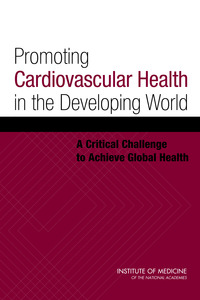Time: Monday, Jan. 12, 1981
A new international campaign against nuclear war
"How can we dispel the notion of some people that anyone will survive a nuclear war? How can we as doctors influence people to prevent any further buildup of nuclear arms?" These are not the questions of an American pacifist but of Dr. Yevgeni Chazov, the Soviet Union's deputy minister of health and an official physician to President Leonid Brezhnev. Moreover, Chazov's view is at variance with some statements by Soviet officials implying that since fewer Soviet citizens are likely to die in an atomic holocaust than Americans, the U.S.S.R. would therefore win.
The idea that either superpower could emerge victorious from a nuclear war is also gaining currency among some U.S. strategists. Vice President-elect George Bush told the Los Angeles Times a year ago that he believed there was such a thing as "a winner in a nuclear exchange." He was echoing the views of some U.S. strategists, including the Hudson Institute's Colin Gray and Keith Payne, who have argued that "the U.S. must possess the ability to wage nuclear war rationally." Alarmed by such statements, some American and Soviet physicians have decided to begin a campaign to dispel what they consider to be a dangerous myth of survivability that may increase the possibility of a nuclear war.
According to U.S. experts, a 20-megaton nuclear warhead, 1,000 times as powerful as the atomic bomb dropped on Hiroshima, detonated over Boston would destroy everything within a four-mile radius. Up to ten miles away from ground zero, fire storms would devastate all buildings and trees. Of the 3 million inhabitants of metropolitan Boston, 2.2 million would be killed outright. Almost every survivor would be maimed, burned or in shock. Of the 6,000 physicians in the area, only 900 would be fit enough to treat the injured. In time, survivors would develop new and virtually incurable ailments, such as severe radiation poisoning and reactions to contaminated food and water.
The recital of this scenario by Dr. Howard Hiatt, dean of Harvard's School of Public Health, stunned a conference in Cambridge, Mass. Declared Hiatt: "Inadequate means of dealing with an epidemic permits only one approach—that of prevention."
To that end, a group of U.S. physicians, headed by Harvard Cardiologists Bernard Lown and James Muller, has organized International Physicians for the Prevention of Nuclear War, Inc. They have recruited several eminent Americans, including Jonas Salk and Nobel Laureate Hamilton Smith. They also got a strong endorsement from Chazov, who wrote: "The medical profession should more actively protest against the senseless policy of increasing arsenals of thermonuclear arms."
At the organization's first conference, scheduled for late March at Airlie House near Washington, some 60 participants from Japan, France, Britain, the U.S. and the Soviet Union will discuss the medical history of Hiroshima and Nagasaki and attempt to determine what the effects of a future thermonuclear war might be. They also hope to present their findings to congressional committees and Reagan Administration officials.
Both Soviet and American physicians are keenly aware of the danger of being used for propaganda purposes by their own, as well as each other's politicians. Says Chazov: "I think our movement would lose a lot of credibility if it became political." ∎
Read more: http://www.time.com/time/magazine/article/0,9171,922349-1,00.html#ixzz0jfGALNCw








 Publication date:
Publication date: 


